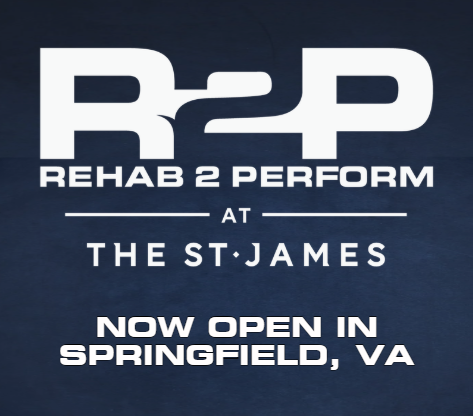Recovering from a Running Related Injury

Running is a fantastic sport that brings us joy, fitness, and a sense of accomplishment. However, it’s not without its challenges, and one of the most significant hurdles we face is dealing with running-related injuries. Studies have shown that these injuries can affect a wide range of runners, with statistics ranging from 20% to 79% of participants experiencing some form of injury during their running journey. Many of us have been there – sidelined by an injury, frustrated by missed training goals, and eager to get back to our best form. The purpose of this article is to highlight the overarching process of recovering from a running injury, highlight when you should seek professional help, and outline expectations for your recovery in PT.
You Got Injured – When Should You Seek Help?
The first question that arises when dealing with a running injury is when to seek professional guidance. If you are unable to bear weight, experiencing unbearable pain that doesn’t respond to rest or medication, or have had a traumatic injury, heading straight to the orthopedic specialist or an urgent care facility is a wise choice. For most other running-related injuries that are often categorized as “overuse” or chronic in nature, there’s another path available. In many states, including Maryland, you have direct access to a physical therapist (pending your insurance plan, although the vast majority of commercial plans allow this option). A physical therapist can be your go-to guide for these types of injuries.
If you’re dealing with the early stages of pain with running, it’s beginning to affect your daily life outside of running, or you’re seeing reduced running performance due to pain, go see your PT! Don’t wait for it to become a major issue where you can’t run at all!
The PT Plan of Care and Recovery
After reaching out to a physical therapist, the evaluation process begins. Your therapist will work with you to understand the nature of your injury, decide if it’s safe to continue running in the short-term, and create a personalized plan of care to get you back to your running routine. Remember, it’s not always necessary to stop running altogether. Depending on the injury, you might be able to continue, although your mileage may need to be reduced temporarily. Maintaining some level of running (even if reduced) will allow you to get back to your prior mileage faster, and maintain or slow the loss of fitness. Losing fitness related to running takes longer than you think!
Your physical therapist will provide you with invaluable insights into your injury, helping you understand it better. They will help you set realistic expectations for your recovery and recommend modifications to your running routine to ensure a safe return to the sport you love.
Getting Back into Running
As your therapy progresses and your injury heals, you’ll likely be eager to get back into running. Your physical therapist will work with you to gradually reintroduce running, ensuring you don’t rush and risk reinjury. You’ll receive guidance on the proper techniques and exercises to prepare your body for a smooth transition back to running.
If you’ve lost a lot of time running due to injury, this may look like a structured walk/jog or interval jogging program. If you’ve been able to maintain some amount of training with appropriate symptoms this may look like progressive increases in volume based on percentage (10-20% increases etc.).
Getting Back to Your Best
Once you’ve successfully resumed running, your physical therapist becomes your ally in getting back to your best performance. They will work with you on increasing your running volume, addressing any remaining weak points, and helping you become a better runner than before. This often involves running drills, targeted strengthening exercises, and plyometrics to enhance your running performance.
Additionally, your physical therapist is well-equipped to identify any nutritional factors that may have contributed to your injury or hindered your performance. They can refer you to a registered dietitian who can create a nutrition plan to optimize your running and overall health.
The Finish Line
In conclusion, recovering from a running-related injury is a journey that can be both challenging and rewarding. It’s essential to know when to seek professional help, work closely with a physical therapist, and set realistic expectations. With their guidance, you can return to running stronger and more resilient than ever before.
Remember, running is a lifelong passion, and overcoming injuries is part of the journey. By working with healthcare professionals and embracing the process, you can get back to the joy of running and reach new heights in your performance. Stay motivated and keep running!
-Keep running strong!, Dr. Greg.
Experience issues or pain when running or walking? Schedule a Free Injury Consult now with one of our Performance Physical Therapists. Schedule Here
Looking for more guides, templates, and support along your Running Journey? Check out and work with Dr. Greg on our online platform, R2P+ . Get Started Now!

Dr. Greg Ellis PT, DPT, CSCS
Performance Physical Therapist
Follow Greg on Instagram (HERE) for more content and to see his running progress!
Fitness Focused Physical Therapy
Running injuries holding you back? Rehab 2 Perform specializes in preventing risk to re-injury and empowering you with the tools to stay active. We serve the Annapolis, Bethesda, Columbia, Frederick, Gambrills, Germantown and Mt. Airy areas in Maryland, and now in the Tysons Corner Business District in Virginia. Contact us today at 1(301) 798- 4838 or schedule an appointment by visiting us here today.
We accept all major insurances, including Tricare, VA Community Care, and the Johns Hopkins Healthcare Network!

